Libraries as Community Catalysts
Libraries as Community Catalysts is an OCLC research and programming initiative that seeks to support libraries and cultural institutions as catalysts for positive change. This work understands libraries as crucial community hubs with dynamic spaces for learning, collaboration, and community engagement.
OCLC Research partners with libraries and cultural institutions to offer the resources needed to meet changing community needs. This approach emphasizes the evolving and expanding role of libraries as essential contributors to a community's well-being and development.
Presentations
Narrow by
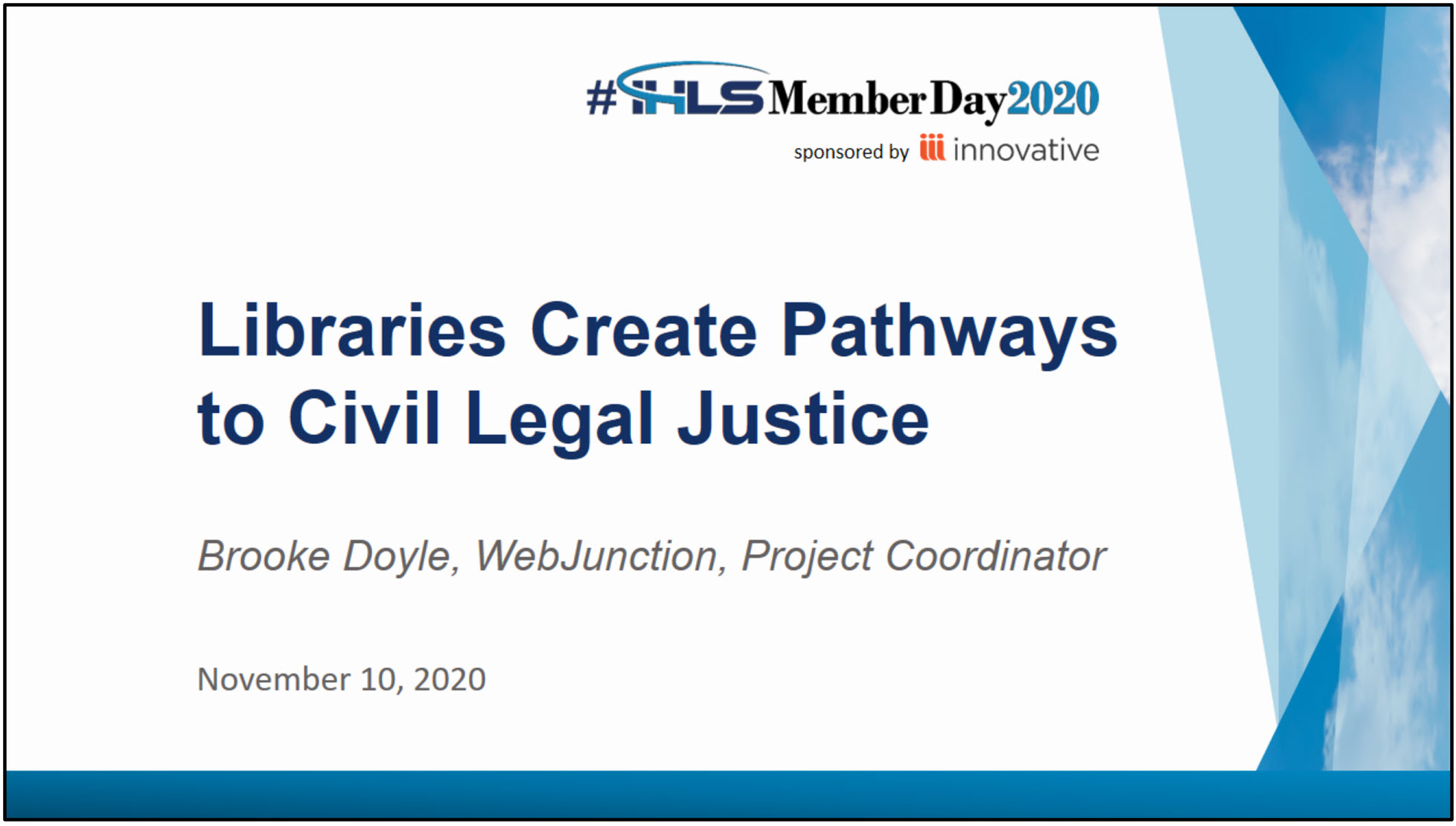
Libraries Create Pathways to Civil Legal Justice
virtual
People instinctively turn to the library to find help with crises in their lives. The impact of the COVID-19 pandemic has amplified a host of civil legal issues, such as housing, employment, divorce, custody, or debt management. Too many people don’t know their options and can’t afford to start with a lawyer. You and your library play a vital role in connecting community members with relevant information to help them navigate the complexities of the civil legal system, especially in rural areas where legal resources are sparse. Get inspired by stories of how the library can turn people’s lives around.
Topics: WebJunction
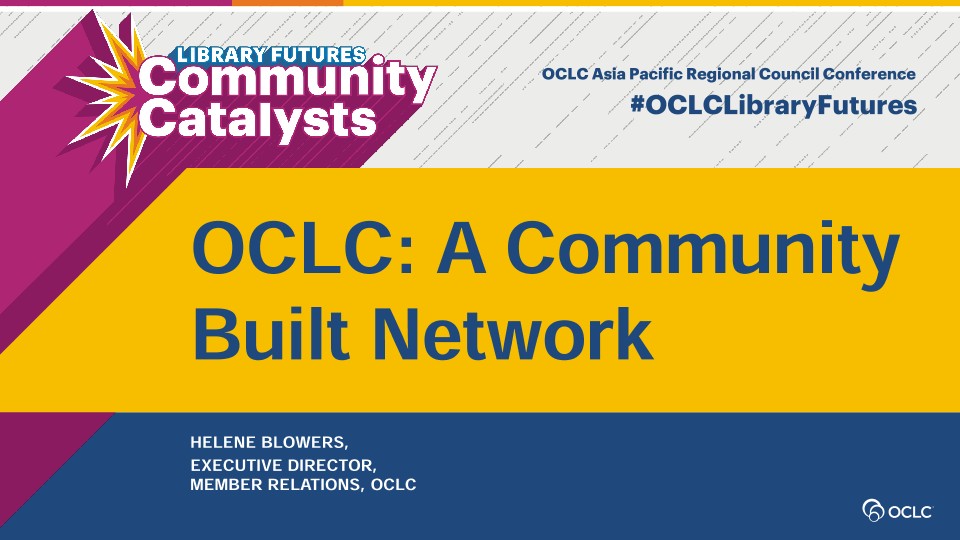
Build Powerful Networks to Achieve More Together
Helene Blowers, Director, Membership, explains how OCLC uses the power of collaboration to scale learning, scale innovation, and scale capacity, through a library network that allows libraries to collaborate at scale to achieve efficiencies and impact.
Topics: Sourcing and Scaling
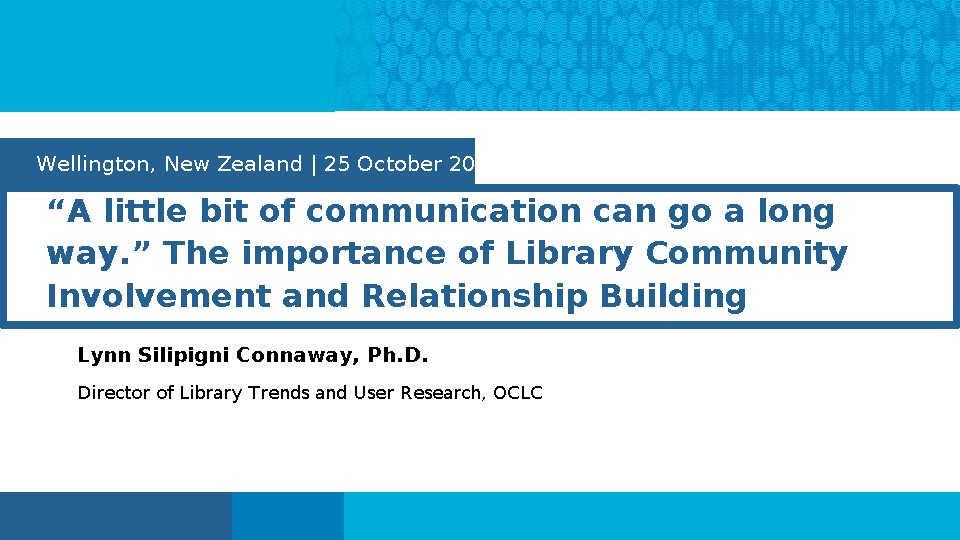
“A little bit of communication can go a long way.” The importance of Library Community Involvement and Relationship Building
Te Puna Libraries, New Zealand
In this presentation, Lynn Silipigni Connaway describes the different roles libraries play, and how libraries are centering themselves in the life of their users in several important ways. She also provides an overview of the OCLC Research Library Partnership.
Topics: Student Support
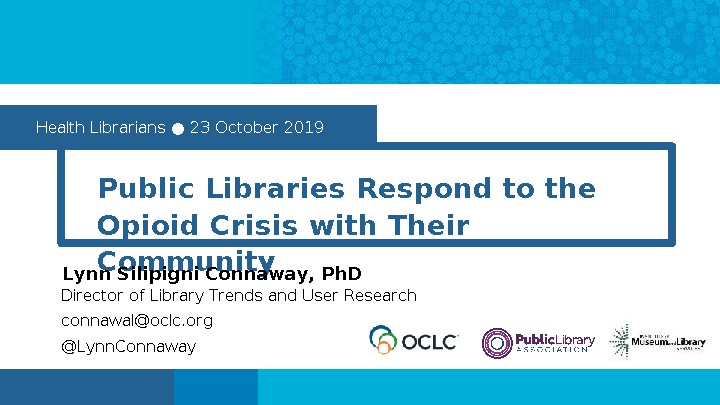
Public Libraries Respond to the Opioid Crisis with Their Community
Melbourne, Australia
This update on the project “Public Libraries Respond to the Opioid Crisis with Their Communities” reviews project goals and activities, methodology, and findings.
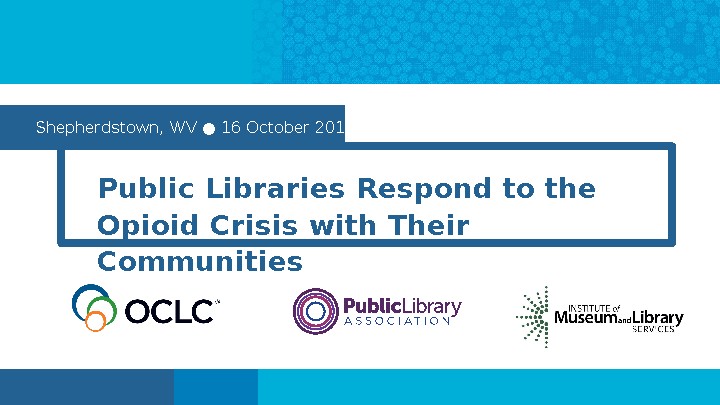
Public Libraries Respond to the Opioid Crisis with Their Communities
Shepherdstown, West Virginia, USA
Morgan provides an overview of the research and the outcomes of the OCLC and Public Library Association project "Public Libraries Respond to the Opioid Crisis with Their Communities" in this presentation.
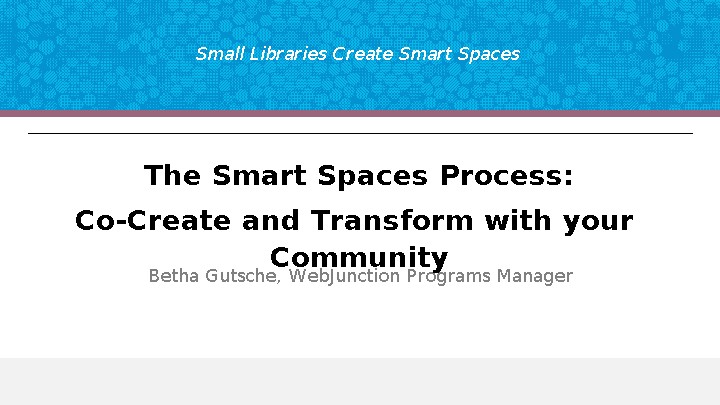
The Smart Spaces Process: Co-Create and Transform with Your Community
Burlington, VT (USA)
This presentation shows how libraries can move from designing spaces and services for their community to using key strategies for collaborating with community members to co-create solutions that work. Learn from real-world examples from the participants in the Small Libraries Create Smart Spaces project who applied this community-centered design approach.
Topics: WebJunction
![“It [library tour] wasn't what do you do when you need to make a literature review…” Proactively Positioning the Library in the Life of the User](/content/dam/research/presentations/2019/082619-connaway-library-life-user-ifla19.pptx.thumb.1280.1280.png)
“It [library tour] wasn't what do you do when you need to make a literature review…” Proactively Positioning the Library in the Life of the User
Athens, Greece
In this keynote presentation, Lynn Silipigni Connaway provides context for the state of information seeking, and makes a case for positioning the library as more than just a place. She also provides examples for both academic and public libraries that are meeting the users where they are.
Topics: Information Literacy, Student Support
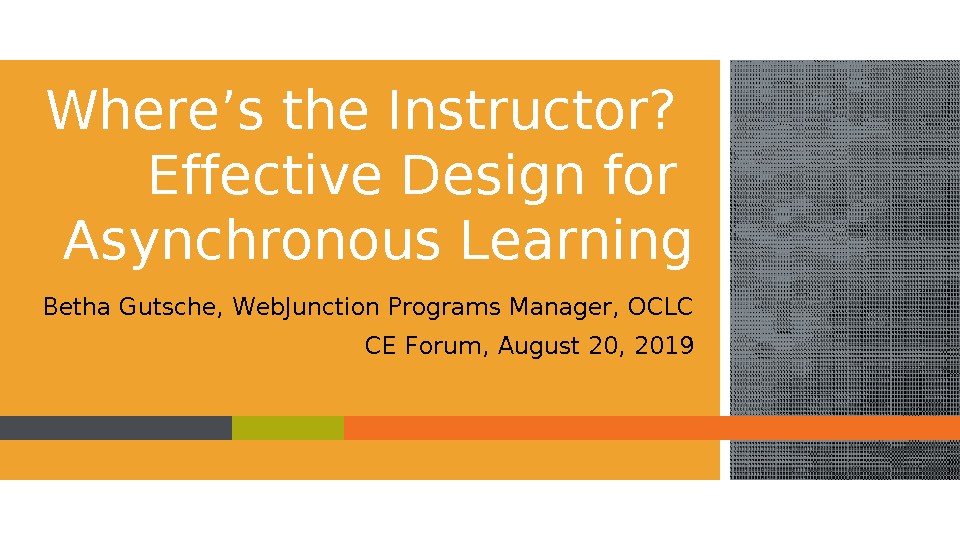
Where's the Instructor? Effective Design for Asynchronous Learning
Austin, TX (USA)
In this hands-on workshop, Gutsche leads participants through the basics about asynchronous learning, instructional design, and how to embed the instructor in self-paced design. In addition to the slides, download the workbook (PDF) for the workshop.
Topics: WebJunction
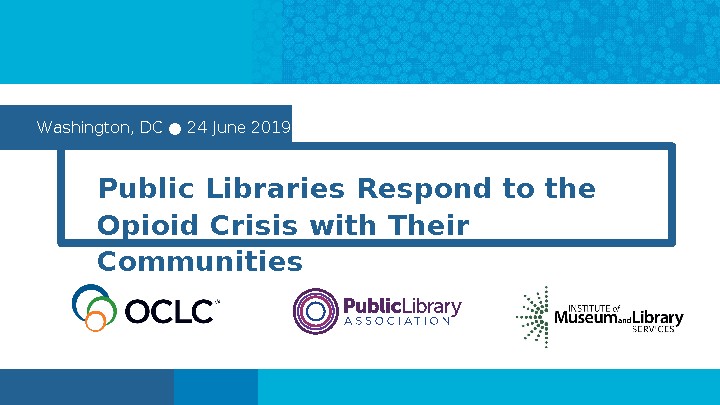
Libraries and the Opioid Epidemic: Community-based Responses
Washington, DC (USA)
In this session, panelists share insights gained from the case studies conducted as part of the Public Libraries Respond to the Opioid Epidemic with Their Community project, as well as cross-sector discussions about emerging practices, opportunities, and challenges, and identify resources to help library staff guide their libraries’ response to the opioid crisis.
Topics: WebJunction
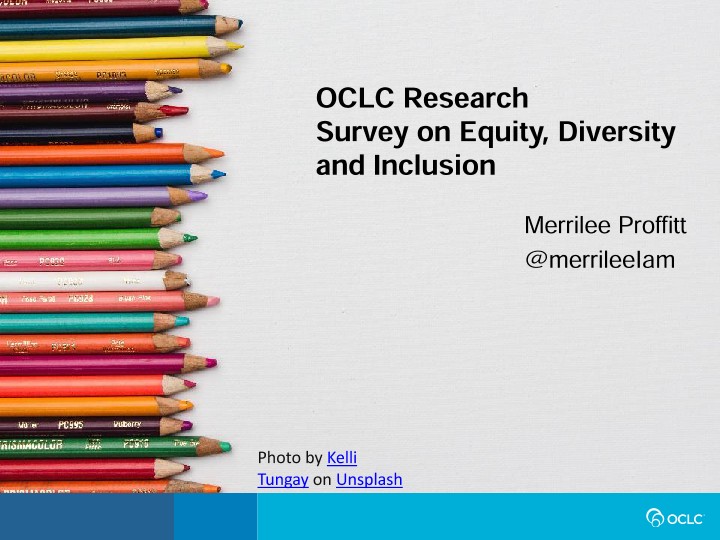
OCLC Research Survey on Equity, Diversity, and Inclusion
London (UK)
Proffitt shares results from a survey of OCLC Research Library Partners on equity, diversity, and inclusion (EDI) efforts within the Partnership that could inform specific follow-up activities to provide assistance and inform practice.
Topics: Equity, Diversity, Inclusion